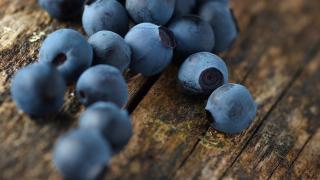
Diet, Nutrition and Treatment Side Effects
Here are City of Hope dietitian Elaine Siu’s nutrition tips for the most common treatment side effects patients experience.
In most cases, it is crucial that cancer patients eat as much as possible to maintain their body weight during treatment, even if their appetite has changed. When experiencing this side effect, Siu says patients should:
- Eat small meals frequently.
- Keep snacks handy for whenever hunger strikes.
- Limit beverages before and during meals so you fill up on the foods you’re eating and not liquids you’re drinking.
- When you do drink liquids, choose options that contain a good amount of calories and other nutrients. Protein shakes are a good option in this instance.
- Choose high-calorie, high-protein foods.
- Enjoy larger meals whenever you feel up to it.
Chemotherapy affects your taste buds, resulting in some patients finding that red meat has a bitter or metallic taste. Others may lose taste altogether.
- Eat white meats like chicken and turkey.
- Incorporate other proteins like eggs, tofu and beans.
- If you‘re experiencing a loss of taste:
- Marinate foods before cooking them.
- Season foods with tart fruits like lemon and lime, along with herbs and spices.
- Try sweet foods to counteract bitter, salty or acidic tastes.
During treatment, the very smell of certain foods can make patients sick to their stomachs. If you’re plagued by sensitivity to smell:
- Eat foods cold or at room temperature to make smells more tolerable.
- Keep windows open and use fans, if possible, to keep air circulating throughout eating areas.
4. NAUSEA
One of the most challenging side effects cancer patients face is nausea. It’s important to keep weight on while in treatment, but that is challenging when the thought of eating is making you nauseated.
Your doctor can prescribe nausea medications to treat this side effect, but there are also modifications you can make to your diet:
- When experiencing this symptom, start with juice, broth, ginger ale or other clear liquids.
- When you feel up to eating, choose plain foods like bread, crackers and fruit.
- Stick to four to six small meals a day, and avoid skipping meals whenever possible.
5. DRY MOUTH
Many patients struggle with dry mouth, making eating and drinking uncomfortable. To combat dry mouth:
- Sip on water regularly throughout the day.
- Snack on sugar-free hard candy, tart foods, and popsicles or ice chips.
- Add gravy or other sauces to food.
- Avoid all alcohol — even alcohol-based mouthwashes.
6. MOUTH SORES
When faced with painful mouth sores:
- Turn to liquid supplements and shakes as meal replacements.
- Eat soft, chopped foods like soups, mashed potatoes, egg salad, scrambled eggs and oatmeal.
- Choose cold foods.
7. WEIGHT LOSS
Limiting calorie intake during cancer treatment is not recommended, even if you are overweight. To keep the pounds on:
- Eat four to six meals a day
- Select high-calorie, high-protein foods.
- Eat regularly. You don’t have to wait until you feel hungry.
- To increase your protein consumption, add tofu, peanut butter, ice cream and yogurt to smoothies.
- To include more fats in your diet, cook with healthy oils like olive oil as often as possible and snack on avocados, nuts and peanut butter.
- Eat more dairy products like whole milk, ice cream and dry milk powder.
- Incorporate liquid supplements to add calories and nutrients to your diet. There are many options on the market in a host of flavors.
We Have Several Resources Available To You
Use the links below to view useful guides and booklets to help you manage the effects of pain and fatigue. Many are also available in print at the Sheri & Les Biller Patient and Family Resource Center on our main campus in Duarte
- Nutrition During Chemotherapy
- Eating Hints: Before, during and after cancer treatment (NCI) / Consejos de alimentación: Antes, durante y después del tratamiento del cáncer (NCI)
- Preventing, Managing and Treating Constipation
- To Your Health Recipe Book
- Nutrition and the Cancer Survivor / Español
- Healthy Eating Tips for Cancer Patients
- Nutrition Recommendations for Prostate Cancer Patients
- Nutrition Recommendations for Breast Cancer Patients